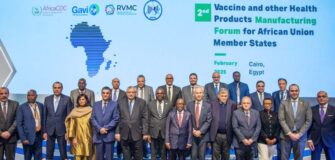Share
Jean Kaseya, the Director-General of the Africa Centres for Disease Control and Prevention (Africa CDC), has made an urgent and heartfelt appeal to U.S. Secretary of State Marco Rubio to immediately lift the freeze on vital health aid to Africa. Kaseya articulated serious concerns that this suspension not only threatens the continent’s ability to manage and respond to disease outbreaks but could also lead to a staggering 2 to 4 million preventable deaths annually across African nations.
The implications of this aid freeze are profound, jeopardizing crucial initiatives aimed at combating persistent health crises, including the devastating HIV epidemic that has long plagued the continent. Furthermore, it heightens the vulnerability of African populations to emerging health threats. A notable example Kaseya highlighted is the recent pox outbreak, particularly intensified by ongoing conflicts in the eastern Democratic Republic of Congo. He pointed out that millions of essential pox vaccine doses are currently trapped in Kinshasa, the capital, due to severe security issues, underscoring the urgent need for intervention and support to combat this crisis.
Reflecting on the lessons learned from the COVID-19 pandemic, Kaseya warned of Africa’s potentially catastrophic global fallout from neglecting public health emergencies. Ignoring the continent’s pressing health challenges poses a real risk of new pandemics arising, threatening Africa and global health security. Additionally, he revealed that the Africa CDC faces a significant financial shortfall of approximately $200 million from an initial commitment of $1.1 billion, further complicating the continent’s efforts to address critical health issues effectively.
A recent statement from the Africa CDC projected that without prompt action, the existing financial constraints could undo decades of advancement in public health, likely resulting in millions more preventable deaths each year. This loss of life carries substantial economic repercussions, potentially pushing an estimated 39 million additional individuals into poverty.
The consequences of the U.S. foreign aid suspension extend well beyond Africa’s health infrastructure and represent a significant threat to global health security. In a recent interview, Dr. Kaseya emphasized the urgent need for continued support from international partners, asserting that such assistance is vital to preventing widespread health crises that could have far-reaching impacts.
The Africa CDC remains resolute in advocating for the urgent reinstatement of essential health aid, stressing that the welfare of millions in Africa—and, by extension, the broader global community—hinges on collaborative, timely, and sustained action to confront the most critical health challenges. Kaseya’s compelling call to action is a powerful reminder of the necessity for global engagement in safeguarding public health across the continent.
Image Source:ft.com


